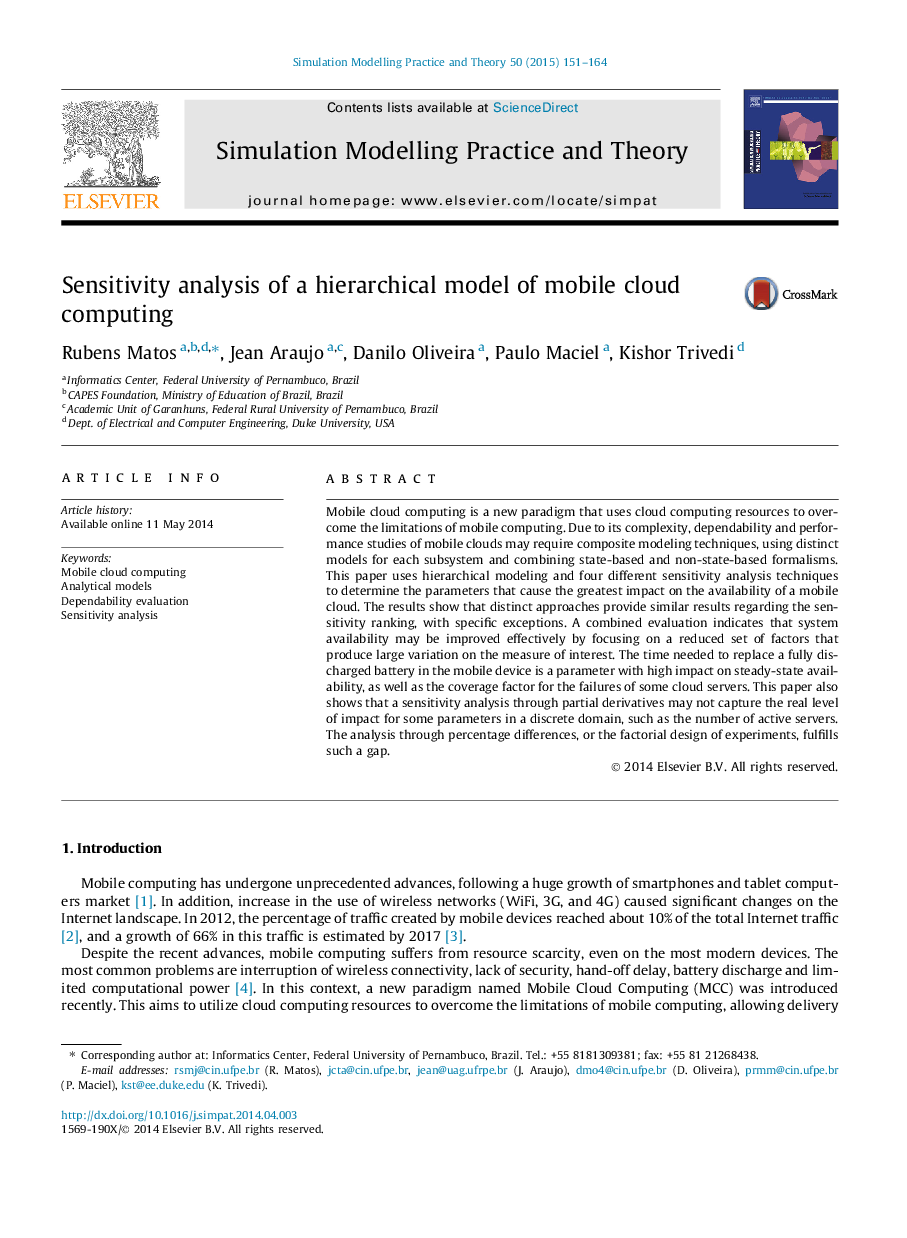| Article ID | Journal | Published Year | Pages | File Type |
|---|---|---|---|---|
| 492471 | Simulation Modelling Practice and Theory | 2015 | 14 Pages |
Mobile cloud computing is a new paradigm that uses cloud computing resources to overcome the limitations of mobile computing. Due to its complexity, dependability and performance studies of mobile clouds may require composite modeling techniques, using distinct models for each subsystem and combining state-based and non-state-based formalisms. This paper uses hierarchical modeling and four different sensitivity analysis techniques to determine the parameters that cause the greatest impact on the availability of a mobile cloud. The results show that distinct approaches provide similar results regarding the sensitivity ranking, with specific exceptions. A combined evaluation indicates that system availability may be improved effectively by focusing on a reduced set of factors that produce large variation on the measure of interest. The time needed to replace a fully discharged battery in the mobile device is a parameter with high impact on steady-state availability, as well as the coverage factor for the failures of some cloud servers. This paper also shows that a sensitivity analysis through partial derivatives may not capture the real level of impact for some parameters in a discrete domain, such as the number of active servers. The analysis through percentage differences, or the factorial design of experiments, fulfills such a gap.
